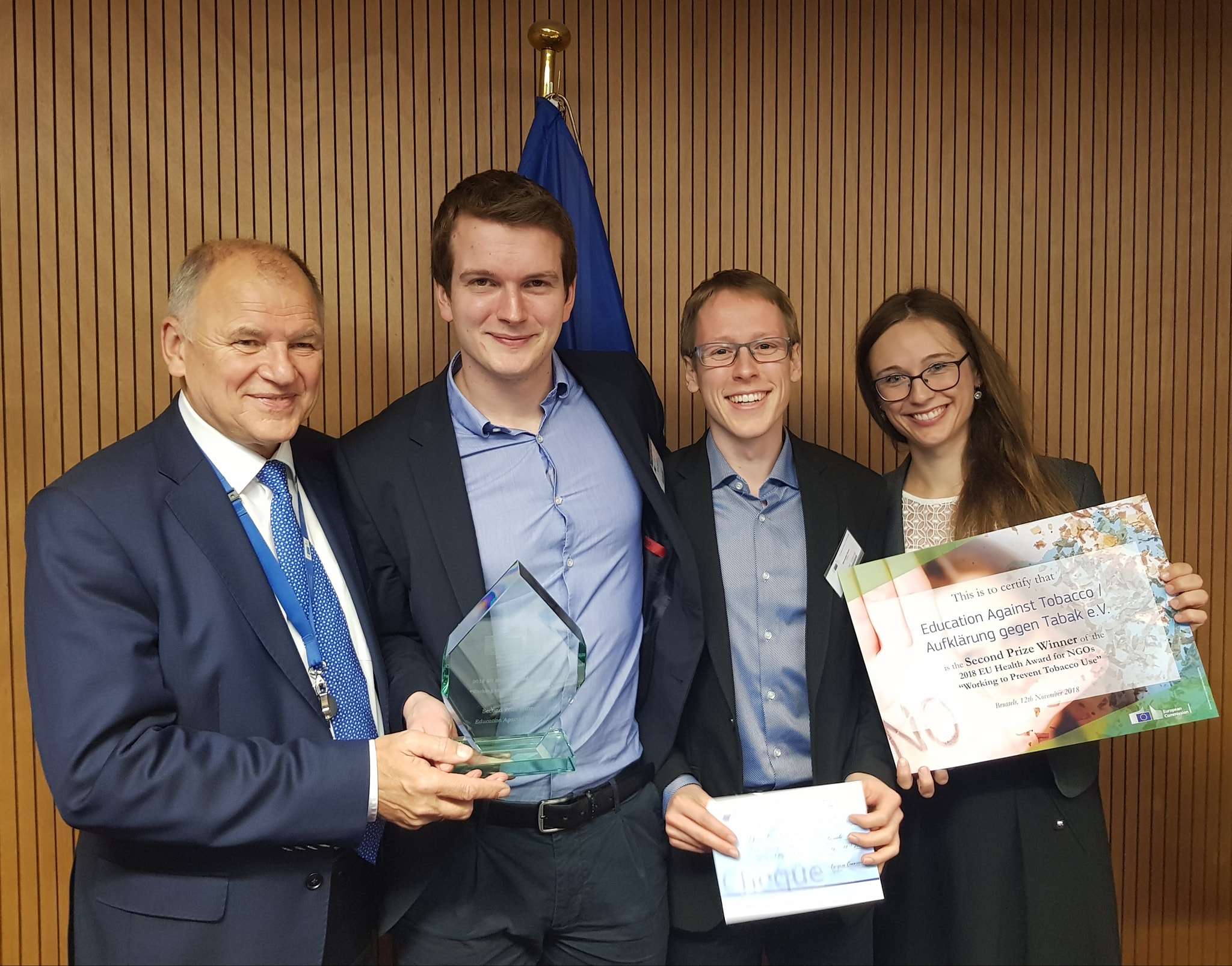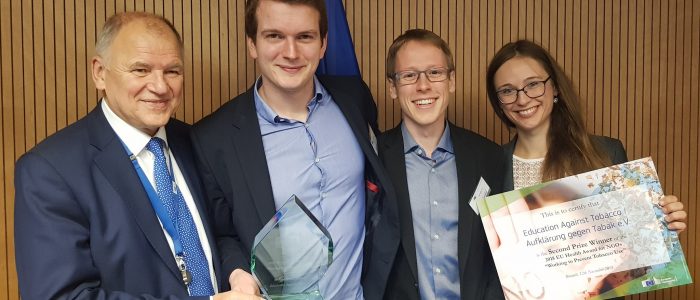EU Health Award 2018 for Education Against Tobacco

Vytenis Andriukaitis (EU Commissioner for Health and Food Safety), Dr. Titus Brinker (Founder and Chair of EAT), Benedikt Gaim (International Coordinator of EAT) and Janina Suhre (Board Member of EAT) at the Award Ceremony in Bruxelles
Smoking is the most important avoidable risk factor for chronic diseases and premature death worldwide. Most smokers reach for cigarettes for the first time in adolescence.
Although the European Commission is striving with strict legislation to make tobacco products less attractive to young people, experience clearly shows the need for a multimodal approach to minimise the consumption of tobacco products in the EU, says Vytenis Andriukaitis, EU Commissioner for Health and Food Safety. The work and commitment of non-governmental organisations is essential to successful tobacco prevention.
For this reason, this year’s annual EU Health Award has been given to non-governmental organisations that make a valuable contribution to reducing tobacco consumption in Europe. Eleven projects were shortlisted and invited to the award ceremony on 12.11.2018 as part of the annual “EU Health Policy Platform” of the European Commission. Representing the 3500 members of Education Against Tobcco, Dr. Titus Brinker, founder and chairman, Benedikt Gaim, EU coordinator, and Janina Suhre, board member, travelled to Brussels to be awarded second prize by EU Commissioner Vytenis Andriukaitis.
See a video of the award ceremony here.
In the multinational network “Education Against Tobacco”, which was started in 2012, more than 3,500 medical students in about 80 medical faculties in 14 countries have volunteered for tobacco prevention since then. In its scientifically based prevention seminars, EAT also uses innovative methods, such as facemorphing apps for the smartphone. More than 45,000 students per year are reached through the prevention programs. Prospective doctors are sensitized to the problem of smoking through their voluntary commitment to EAT. To improve medical teaching, scientifically founded elective courses were established at 13 medical faculties in Germany. Medical students are trained in professional tobacco cessation in order to be able to provide their future smoking patients with guideline-based treatment and support in stopping smoking. The self-developed apps “Smokerface” and “Smokerstop” have already reached over 500,000 people. Evaluation studies with currently more than 20,000 secondary school students are used to examine the effectiveness of EAT’s measures.
Here you can read about the other projects awarded and shortlisted.

